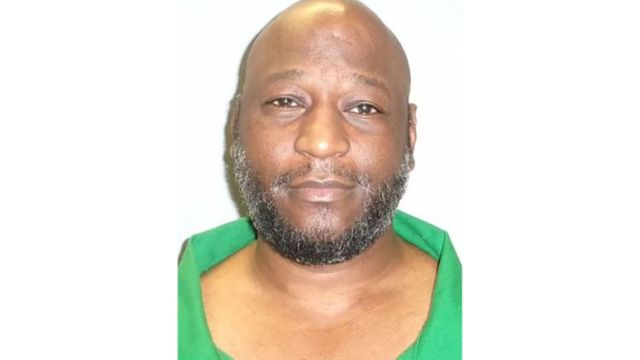Columbia, South Carolina — South Carolina has scheduled a September 20 execution date for convict Freddie Eugene Owens, which would be the state’s first in more than 13 years.
South Carolina was previously one of the busiest states for executions, but for years it had difficulty getting lethal injection medications due to pharmaceutical companies’ fears about having to report that they had provided the chemicals to officials.
The state Legislature has already passed legislation allowing officials to keep the identities of lethal injection medication suppliers secret, and the state Supreme Court cleared the way for executions to resume in July.
Owens, who killed a Greenville store clerk in 1997, would most likely be given the option of dying by lethal injection, electrocution, or the newly introduced firing squad. According to the non-profit Death Penalty Information Center, the last person killed by firing squad in the United States was a Utah convict in 2010.
The prison’s director has five days to confirm that all three execution procedures would be accessible. He must also provide confirmation to Owens’ lawyers that the lethal injection medicine is stable and properly compounded, according to the high court’s 2023 reading of the state’s execution secrecy statute, which helped revive South Carolina’s death chamber.
Owens, 46, will then have about a week to tell the state how he wants to be killed. If he does not make a choice, the state will automatically sentence him to the electric chair.
A lawyer for Owens said the defense is waiting for prison officials to submit a sworn statement next week about the purity, potency, and quality of the lethal injection drug under the rules of South Carolina’s new shield statute, which will be reviewed by both state and federal courts.
“The lack of transparency about the source of the execution drugs, how they were obtained and whether (they) can bring about as painless a death as possible is still of grave concern to the lawyers that represent persons on death row,” attorney John Blume said by email on Friday.
The justices did not specify how much material must be provided, but they pledged a quick decision if an inmate contested the contents of the revelation.
South Carolina formerly utilized a combination of three medications for fatal injections, but will now use only one substance, the sedative pentobarbital, in a technique comparable to federal executions.
Owens can appeal to Republican Gov. Henry McMaster for mercy and a reduction of his sentence to life without parole. No South Carolina governor has ever given clemency during the contemporary period of the death penalty.
South Carolina’s last execution occurred in May 2011. The state did not want to halt executions, but its supply of fatal injection pharmaceuticals ran out, and firms refused to sell the state more if the transaction was made public.
It took a decade of legislative struggle — first introducing the firing squad as a technique, then adopting a shield statute — to reintroduce death punishment.
South Carolina has executed 43 prisoners since the death penalty was reinstated in the United States in 1976. In the early 2000s, it carried out an average of three executions per year. Only nine states have executed more convicts.
However, since the inadvertent execution stop, South Carolina’s death row population has decreased. As of early 2011, the state has 63 condemned inmates. It currently holds 32. Following successful appeals, around 20 convicts were removed from death row and sentenced to various jail terms. Others have perished from natural causes.
Along with Owens, at least three other inmates have exhausted their usual appeals, and a few more are on the verge of doing so, implying that the death chamber may be occupied through the end of 2024.
The recent state Supreme Court decision that reopened the door to executions determined that the state shield statute was legitimate and that the electric chair and firing squad were not cruel penalties.
The South Carolina General Assembly authorized the state to establish a firing squad in 2021 so that offenders could choose between it and the same electric chair purchased in 1912.
Supporters of the firing squad, including those Democrats who oppose the death penalty, claim it is the quickest and most painless means to execute an offender.
Owens murdered store clerk Irene Graves during a series of robberies in 1997. He has been sentenced to death three times in his appeals.
Owens killed his cellmate at the Greenville County jail after being convicted of murder in his first trial in 1999, but before a jury could decide on his punishment.
According to trial testimony, Owens provided investigators a detailed account of how he killed his cellmate by stabbing and burning his eyes, choking and kicking him while another prisoner was present in the cell and remained silently in his bunk.

